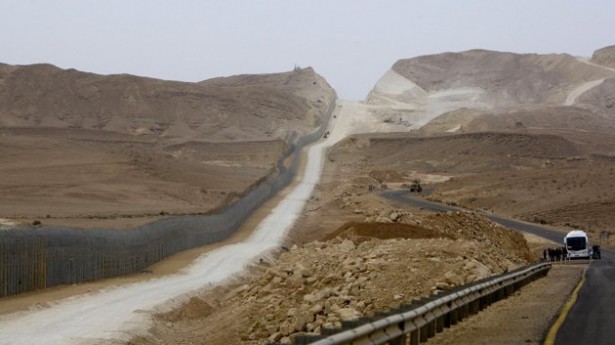WASHINGTON, DC: Like a dilapidated house, the US-Syria relationship has been in need of repair and renovation for years. Since President Obama’s Jan. 20 inauguration call for engagement with “adversaries , slow but steady and serious work by both sides has begun to restore the structure and substance of the ramshackle relationship.
It is old news that bilateral relations had crumbled, lacking the essential cement of mutual respect and trust. For instance, a March 2009 Gallup poll surveying Syrian public opinion found that 64 percent of respondents had an unfavorable view of the United States and 71 percent disapproved of America’s leadership. Comparable results could be expected from a survey of the American public’s views towards Syria.
If we were to take a poll today, however, it would likely show a shift in perspectives. An interest in working towards common goals has been expressed by both governments – small steps toward repairing the house’s broken windows and doors.
Both countries have taken these steps. Pejorative terminology in Syria’s diplomacy has been dropped and calls from Washington for regime change have disappeared. Instead President Bashar al-Assad and Foreign Minister Walid Mouallem have called for a new start.
The Obama team has acknowledged Syria’s importance and its part in forging a region devoid of brutal and costly conflicts. Jeffrey Feltman, Acting Assistant Secretary of State for Near Eastern Affairs and Dan Shapiro of the National Security Council have visited Damascus twice, a US Central Command military delegation met with counterparts in Syria to discuss security matters concerning Iraq and Mouallem and Hillary Clinton, US Secretary of State, had a productive phone call designed to pave the way for further bilateral engagements. And now in a long-awaited move, the United States has announced it will be sending an ambassador to Damascus, a position purposely left vacant for four long years.
The prospects for rebuilding a functional relationship are looking up.
Damascus will see this appointment as strengthening the foundation of the relationship. But this is only the beginning of a series of diplomatic steps required to rebuild the house.
While the US and Syria strongly disagree on how to address many of the challenges before them, they also have defined areas of common interest.
One of these is Iraq. Trilateral counter-terrorism cooperation between Syria, the United States and Iraq on border security is a critical area of cooperation.
The Status of Forces Agreement (SOFA) provides for the withdrawal of American armed forces, but it does not cover many important issues that only US engagement of Iraq’s neighbors, beginning with Syria, can resolve.
Syria has not been shy about its desire for a peaceful Iraq, with a stable and secure central government. What Syria most fears is a country with a weak central government and sectarian civil conflict on its western flank. Syria could help the United States find a constructive military exit from Iraq. And the United States could support enhanced economic cooperation between Iraq and Syria.
Meanwhile, through Special Envoy George Mitchell, the United States is changing its hands-off policy toward Syrian-Israeli negotiations, mediated by the Turkish government over the last year and a half. Indeed US policy makers are finding ways to work with Turkey to help facilitate an Israeli withdrawal from the Golan Heights and create a new demilitarized space in return for peace and normalization between the two countries.
Moving forward, it will be important for Damascus and Washington to acknowledge positive developments when they take place, instead of repeating the pattern of making non-negotiable demands.
The Obama administration’s process of engagement alone will not restore the crumbling building. Positive steps will wax and wane, in need of reinforcements. But mutual constructive engagement is the only way forward. In this regard, Syria cannot ignore American requests to invoke positive change in the region.
It will take time to restore the essence of the relationship, commencing with trust and then pursuing a two-way engagement process. Let the rehabilitation and restructuring continue, brick by brick.
Thomas A. Dine is senior advisor of Search for Common Ground’s US-Syria Program. Sonya Reines-Djivanides is director of the Track II Mediation Unit at Search for Common Ground. This article was written for the Common Ground News Service (CGNews).


